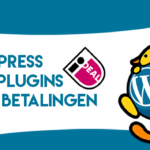Introduction
Speeding up your WordPress website is essential for providing an optimal user experience and achieving higher search engine rankings. Visitors expect a website to load within just a few seconds; if it doesn’t, they quickly move on. Moreover, Google considers page speed an important ranking factor. In this blog, we share seven practical tips to help you improve the speed of your WordPress website and boost your conversions. Speeding up your WordPress website is easier than you think when you follow the right steps.
1. Choose a Fast and Reliable Hosting Provider
The hosting provider you choose has a major impact on your website’s performance. Cheap shared hosting can result in slow loading times and performance issues. Consider opting for a fast managed WordPress hosting provider such as Kinsta, SiteGround, or WP Engine. VPS or cloud hosting options often offer better performance than shared hosting.
Tip: Make sure your provider offers server-side caching and Content Delivery Network (CDN) support to enhance your WordPress website speed.
Contact us for advice on the best hosting options.

2. Use a Lightweight WordPress Theme
Some WordPress themes come overloaded with unnecessary features and heavy scripts that slow down your site. Choose a lightweight and well-optimized theme like Astra, GeneratePress, or Neve. These themes are specifically designed for speed and performance.
Note: A fast theme forms the foundation for an effective WordPress website speeding-up strategy.
3. Optimize Your Images
Images can consume a lot of space and significantly slow down your website. Use tools like TinyPNG or ShortPixel to compress images without losing quality. You can also use WebP formats instead of traditional JPEG or PNG files, as they are lighter and load faster.
Extra Tip: Implement “lazy loading” to load images only when they become visible to the user. This directly contributes to speeding up your WordPress website.
4. Implement Caching
Caching helps speed up your pages by storing static versions of your website. Plugins like WP Rocket, W3 Total Cache, and WP Super Cache can significantly improve performance.
Server-side caching, often offered by premium hosting providers, can further enhance your site’s speed, playing a key role in speeding up your WordPress website.
5. Minimize and Combine CSS, JavaScript, and HTML
Large or unnecessary CSS, JavaScript, and HTML files can slow down your website. Tools like Autoptimize and WP Rocket help you minimize and combine these files, reducing the number of HTTP requests needed.
Important: Minifying your files reduces their size and improves loading times—essential steps for speeding up your WordPress website.
6. Use a Content Delivery Network (CDN)
A CDN stores copies of your website on multiple servers worldwide, allowing visitors to load content from a server closer to their location. This greatly reduces loading times.
Recommended CDN services include Cloudflare, StackPath, and KeyCDN. Integrating a CDN is a powerful move for speeding up your WordPress website.
7. Remove Unnecessary Plugins and Unused Themes
Having too many plugins can slow down your website, especially if they are poorly coded or resource-intensive. Remove unnecessary plugins and use only highly rated and regularly updated ones.
Similarly, unused themes can burden your site. Keep only your active theme and one default WordPress theme as a backup.
Bonus: Monitoring and Maintenance
Continuously monitor your website’s performance using tools like Google PageSpeed Insights, GTmetrix, and Pingdom. Regular maintenance, such as updating plugins, themes, and the WordPress core, is essential to keeping your site secure and fast. Ongoing monitoring is a crucial part of speeding up your WordPress website.
Website Speed Testing: Why and How?
A critical step in speeding up your WordPress website is regularly testing your site’s speed. Measuring your load times helps you pinpoint areas for improvement and take targeted action.
Several free tools are available to test your website speed:
- Google PageSpeed Insights: Provides insights for mobile and desktop performance.
- GTmetrix: Analyzes speed and provides detailed recommendations.
- Pingdom Tools: A simple yet powerful speed testing tool.
- WebPageTest: Offers advanced options for deeper analysis.
For a comprehensive guide on testing website speed, check out this article by HubSpot.
Tip: Make speed testing a regular part of your maintenance routine. This way, you can consistently ensure a fast and stable WordPress website.

FAQ About Speeding Up WordPress Websites
What is the most important factor in speeding up a WordPress website?
The most important factor is usually choosing a fast hosting provider combined with caching and optimized images.
Does a CDN really help speed up my website?
Yes, a CDN significantly reduces loading times by serving files from locations closer to your visitors, helping to speed up your WordPress website.
Do I need to remove all plugins to make my site faster?
Not all plugins, but removing unnecessary or poorly coded plugins will significantly help in speeding up your WordPress website.
Is lazy loading effective?
Absolutely, lazy loading improves speed by only loading images when they are about to be seen on the screen.
Conclusion
The speed of your WordPress website directly affects your user experience and SEO performance. By investing in a fast hosting provider, a lightweight theme, caching, and optimized images, you can dramatically improve your site’s speed.
Do you want to speed up your WordPress website and achieve better results? Don’t wait—start optimizing your site today for maximum speed and conversions.
Need professional help speeding up your WordPress website? Contact us today for a free consultation!
Learn more about website performance optimization on HubSpot




